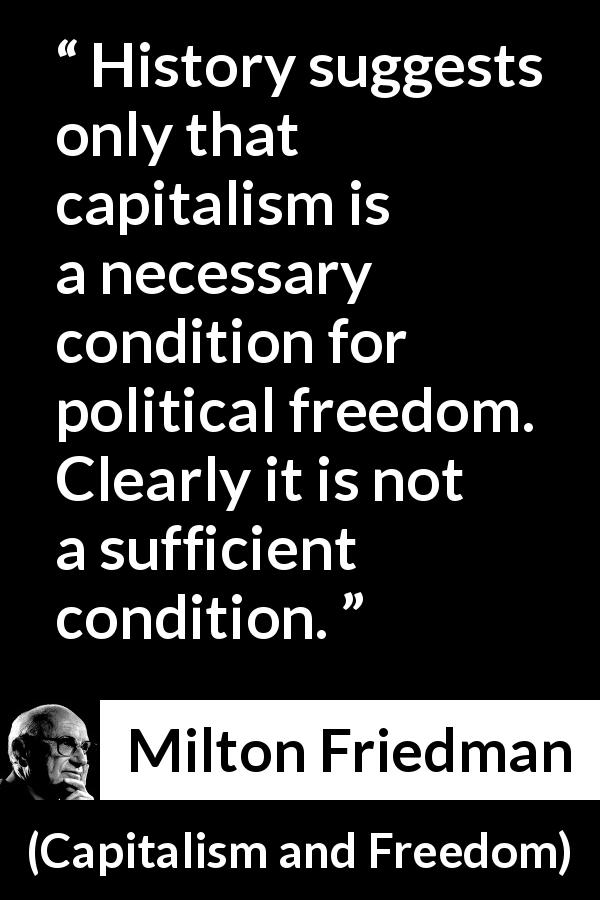
In lieu of the sense of "competition" that involves personal rivalry, Friedman suggests a definition in which competition refers to the number of alternatives available. He considers many who criticize capitalism to be the source of increasing income inequality and exploitation. Given that this is the common notion of competition partly explains why Friedman is wary of people's intuitive judgments about the viability of capitalism throughout Capitalism and Freedom. He argues the common notion of competition involves the idea of "personal rivalry." In this sense, when people are in competition they have a personal interest in outdoing one another, and even an interest in seeing the other fail. He objects to this idea by stating: "This view shows a fundamental misconception of the character and nature of a free economy." Friedman argues imposing such responsibilities is essentially shifting from an individualist, capitalist society to a collectivist, socialist one by binding the decisions of individuals (e.g., businesspeople or union members) to the general public.įriedman begins this chapter by discussing two different notions of competition.

As a result, he argues, the various government regulations put in place to prevent monopolies only serve to further limit the economic freedom of individuals.įriedman ends the chapter with a lengthy discussion of the idea that corporations and labor unions have general responsibilities to society at large. Though monopolies always restrict economic freedom, Friedman argues people overestimate the prevalence and effects of monopoly in the U.S. If foreign steel producers are effectively prevented from selling in the United States, then only the steel producers in the United States have to cooperate-rather than every steel producer in the world. Friedman argues tariffs make this more likely by reducing the number of providers that have to reach an agreement. If several providers of a good or service agree to sell at the same price, they are colluding to fix the market for the good or service. This in turn could support the development of the third sort of monopoly, the kind that arises from private collusion. government placed an extra cost on the import of foreign steel, this would reduce competition within the steel industry. Friedman details how a government can give rise to monopolies and gives tariffs as an example. For instance, sewer and water services for a given community are usually handled by a single provider.


Technical monopolies exist when the nature of a good or service makes it impractical for multiple people or institutions to provide it. Friedman lists three situations leading to the existence of monopolies: technical limitations, government assistance, and private collusion. Monopolies exist when a single person or institution controls the creation and distribution of a product or service.


 0 kommentar(er)
0 kommentar(er)
